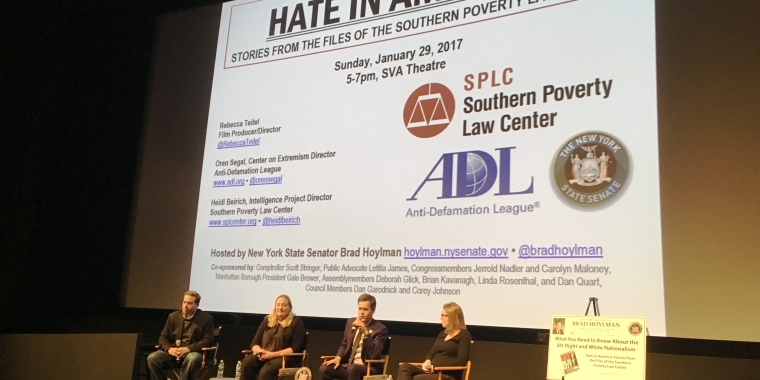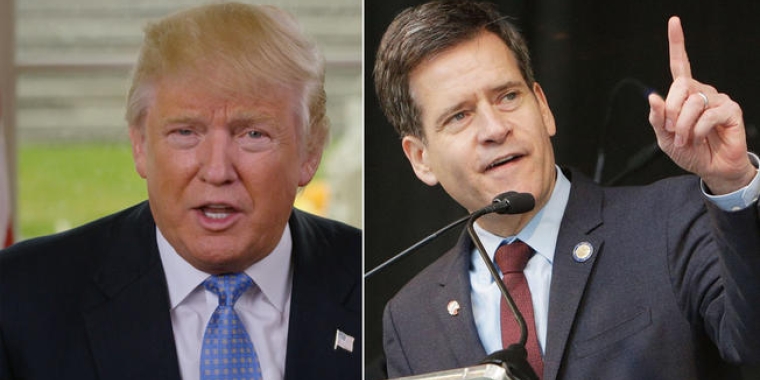
Senate Letter to Governor Hochul on Excluded Workers Fund
October 13, 2021
-
ISSUE:
- senator brad hoylman
- SD 27
Governor Kathy Hochul,
We, the undersigned legislators, are writing to you to discuss the current status of the Excluded Workers Fund (EWF) based on recent updates we have received about the program. We are very proud that, as of September 14th 2021, $1.05 billion of the $2.1 billion total allocation has been approved for distribution. The fact that over 300,000 applications from New Yorkers who were ineligible for State Unemployment Insurance or federal COVID-related benefits, have been submitted in only two months underscores the dire need felt by excluded workers statewide. Legislators, community members and advocates collaborated to address barriers and find solutions - and as such, 99% of applicants approved have qualified for Tier 1 benefits.
However, as you know, the New York State Department of Labor announced that the fund is nearing exhaustion and soon new applications will no longer be accepted. Additionally, they cannot guarantee that funds will be available for any claims submitted after Friday, September 24, 2021. This will be devastating to the community of excluded workers who will find themselves excluded once again. On behalf of thousands of NYS residents who have yet to access the relief they deserve - we have significant concerns we hope for you to address.
Since the passage of the New York State budget in April and the EWF application launch in August, several key policy and operational issues have barred or slowed eligible New Yorkers from applying:
● Proof of work history is not accessible to workers across industries (restaurant, laundry, construction and more) that are paid in cash. EWF could permit cash earners to submit a self-attestation worth 5 points to the EWF program to address this inequity.
● Hurricane Ida destroyed the documents many eligible excluded workers - especially those in Westchester and NYC - needed to apply for this program. EWF could again allow these workers to submit a self-attestation or affidavit of their identity, residency, and work-related history to qualify for the program in light of these unexpected exigent
circumstances.
● The options for proof of residency remain out of reach for many immigrant and low-income New Yorkers. EWF should permit New Yorkers to submit an affidavit from a cohabitant, in line with policies of existing programs including IDNYC and the NYC Department of Health & Mental Hygiene’s mobile food vendor program, to demonstrate proof of residency.
● The technology used by the current phone assistance hotline struggles to understand and properly assist applicants, even English-language speakers. Some applicants that request a call back never receive one. Applicants and advocates need a hotline that immediately connects them to a live agent. EWF should look to the Emergency Rental Assistance Program, which uses a better hotline with more direct access to live
representatives.
● Many applicants who submit the correct and sufficient documentation are incorrectly notified that they are missing documents. When EWF adjudicators do identify legitimate issues, applicants are often asked to provide documents they do not have. More
attention by the Department must be paid to training and data processing so that a clear plan can be generated to rectify both technological concerns and narrow data requests that disadvantage applicants.
The Commissioner of Labor has the authority to address these policies; we ask for your support in directing the Commissioner to make these changes expeditiously so that eligible workers can apply for the benefits they have been awaiting.
More broadly, now is the time to reflect on the success of this historic program and look to the future for applicants and communities in need. We understand the Department of Labor will no longer be able to guarantee benefits for eligible applicants. The original amount allocated for this program will not meet the true need we see in our communities.
Despite the best intentions, outreach programs were not properly implemented in a way that fully enabled potential beneficiaries to be aware of the benefits that might exist prior to the commencement of the application window. Regional disparities also exacerbate community involvement, as there is less visibility and knowledge about the Excluded Worker Fund in areas of the state outside of New York City. Access to relief benefits should not be exclusive to those nearest to a community-based organization or those with greater access to information or resources to apply.
Our intention with this program is to support essential workers who experienced massive hardship during the pandemic. As you know, there is a slow, but necessary process to educate and mobilize eligible workers. Along with our community based partners, we are willing to do the hard work it takes to earn their trust and help them apply for the funding they have earned. We need more time and resources.
Most of all, we ask for your support in supplementing the Excluded Workers Fund with additional resources to ensure the full needs of our communities and the needs of essential workers around the state are met.
We applaud all that the Department of Labor has done so far to distribute funds, and we look forward to working with you to ensure that all eligible excluded workers receive the benefits they desperately need. We are eager to partner with you and the many dedicated state employees who have worked cooperatively with our communities to resolve the current administrative difficulties so that we can dedicate the energy of our State to finding new eligible applicants for this program.
Signed,
Jessica Ramos
Jose Serrano Luis Sepulveda
Brad Hoylman Gustavo Rivera
Julia Salazar Kevin Parker
Robert Jackson Zellnor Y. Myrie
Shelby B. Mayer Alesandra Biaggi
Michael Gianaris John Liu
James Sanders, Jr. Jabari Brisport
Samra Brouk
Share this Article or Press Release
Newsroom
Go to Newsroom
UPDATED: New York’s Hate Crimes Law: An Assessment
January 30, 2017

Hoylman’s “T.R.U.M.P.” Act Picks Up Steam Nationally
January 30, 2017

